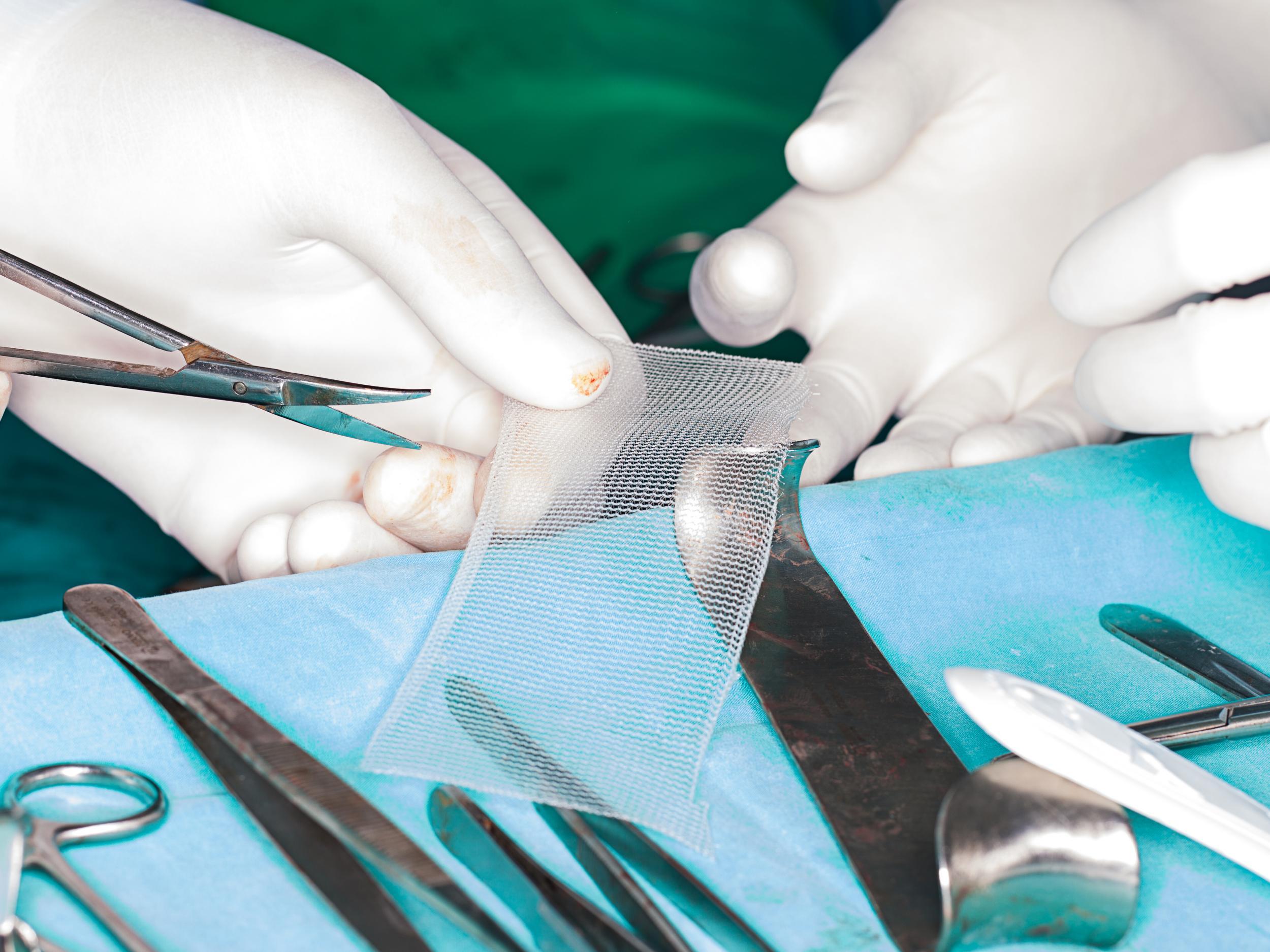Government to review thousands of harmful vaginal mesh implants
NHS England estimates 100,000 women are fitted with the device

The Government has pledged to review tens of thousands of cases where women have been given harmful vaginal mesh implants.
In a major win for campaigners, the Department of Health and Social Care has committed to look at every case back to 2005 to determine the true extent of serious complications that can leave women in agony.
Around 100,000 women are estimated by NHS England to have a mesh device fitted and this is the first review to follow patients from the initial condition that required an implant to subsequent treatment for complications.
Estimates vary over the extent of complications; NHS England figures say they occur in 3 to 5 per cent of women, but academics say it is closer to 10 per cent.
Campaigners have predicted it could affect one woman in three and said it is the “biggest health scandal since thalidomide”.
Responding to the news, Owen Smith, Labour MP and chair of the All Party Parliamentary Group on Surgical Mesh Devices, said the audit would provide “crucial answers” on the true extent of complications.
It comes after the National Institute for Health and Care Excellence (Nice), in December, withdrew its recommendation for the use of mesh devices in women with pelvic organ prolapse.
The watchdog said evidence of the long-term effects of this type of implant was “inadequate in quality and quantity”.
Mesh devices have been linked to serious internal injuries, chronic pain and even death, and hundreds of British women have already joined thousands worldwide taking legal action against manufacturers.
The device comes in the form of a rigid plastic mesh which is inserted into the vagina to support the vaginal wall and weakened pelvic floor muscles after childbirth, preventing internal organs pushing through.
Experts have said other mesh devices, which can include tape “slings” for urinary incontinence and hernia treatments for men and women, are less risky.
Problems have arisen, in part, because of a lack of regulation for medical devices in Europe, which researchers have shown allowed 61 devices to be sold based on just two that passed safety scrutiny.
There are also issues with the initial implantation and long-term follow up of women, as the devices can degrade once inside, leaking plastics into the surrounding tissue or cutting into the vaginal walls.
Mesh campaigner Chrissy Brajcic died of sepsis last year after developing a drug resistant bacterial infection from her implant.
Kath Sansom, founder of campaign group Sling the Mesh, said the Government was finally recognising these issues.
“After two decades of mesh use with poor audit, the Government is finally hearing the voices of women whose lives have changed beyond repair,” she said.
“A survey of 570 women in Sling The Mesh shows a third have suffered mesh slice into their vagina or organs and eight out of 10 have pain walking or sitting.
“Six out of 10 have lost partners because of the strain while seven out of 10 have lost sex lives. A third have had to give up work because of pain. Not surprisingly six out of 10 suffer depression and anxiety.”
Mr Smith, whose parliamentary mesh group has been calling for an in-depth investigation for the past two years, added: “I’m delighted that the Government has listened to our concerns and has now agreed to undertake this audit to get a better understanding of complications related to mesh surgery.
“I hope the audit will provide crucial answers about the proportion of women adversely affected by mesh surgery.”
The Department of Health and Social Care confirmed it was launching an audit but had not provided further details at time of publication.
Subscribe to Independent Premium to bookmark this article
Want to bookmark your favourite articles and stories to read or reference later? Start your Independent Premium subscription today.

Join our commenting forum
Join thought-provoking conversations, follow other Independent readers and see their replies